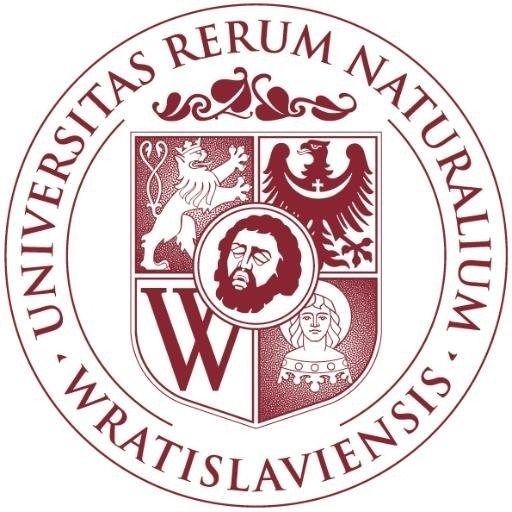The Environmental Protection program at the University of Ecology and Management offers comprehensive education and training designed to prepare students for effective careers in environmental management, conservation, and sustainable development. This program provides students with a solid foundation in environmental sciences, including ecology, chemistry, geology, and biology, alongside specialized knowledge in environmental law, policy, and economics. Students will learn how to assess environmental impacts, develop strategies for pollution reduction, waste management, and resource conservation, and implement practical solutions for maintaining ecological balance. The curriculum emphasizes hands-on learning through laboratory work, field studies, and internships with environmental organizations and government agencies. Graduates will be equipped with the analytical skills necessary to monitor environmental quality, conduct assessments, and develop innovative projects aimed at improving environmental health. Throughout their studies, students will explore critical issues such as climate change, biodiversity loss, renewable energy, and sustainable development practices. The program also focuses on the ethical and social responsibilities of environmental protection, encouraging students to become proactive leaders and effective communicators in environmental advocacy. Graduates of this program can pursue careers in environmental consulting, governmental agencies, non-governmental organizations, research institutions, and private sector companies committed to sustainability. The University of Ecology and Management ensures that students receive a high-quality education aligned with current industry standards and global environmental challenges, empowering them to make meaningful contributions towards a cleaner, healthier planet.
The Environmental Protection program at the University of Ecology and Management is designed to prepare specialists capable of addressing the pressing ecological challenges facing our world today. This comprehensive curriculum provides students with a deep understanding of the fundamental principles of environmental science, ecological systems, and sustainable development. Throughout the course, students explore various aspects of environmental protection, including pollution control, waste management, natural resource conservation, and environmental policy and law.
The program combines theoretical knowledge with practical skills, enabling students to analyze environmental issues critically and develop effective solutions. Students undertake laboratory and field studies to gain firsthand experience in monitoring environmental conditions, assessing ecological impacts, and implementing remediation techniques. Special attention is given to the role of renewable energy sources and innovative technologies in reducing environmental footprints.
Interdisciplinary in nature, the curriculum integrates elements of biology, chemistry, geography, and social sciences to provide a holistic understanding of environmental challenges. students learn to evaluate the social, economic, and political factors influencing environmental policies and practices. The program also emphasizes the importance of public awareness and community engagement in environmental protection efforts.
Graduates of this program are equipped to work in various environmental sectors, including government agencies, non-governmental organizations, consulting firms, and industries committed to sustainable practices. They will be prepared to participate in environmental impact assessments, develop ecological management plans, and promote sustainable development initiatives.
Furthermore, students are encouraged to undertake internships and collaborative projects with real-world organizations. This experiential learning enhances their professional competencies and prepares them for careers aimed at preserving natural ecosystems and promoting sustainable development. With the increasing global focus on environmental issues, graduates of the Environmental Protection program are well-positioned to contribute positively to environmental conservation and to lead initiatives that ensure a healthier, more sustainable future for all.
Program requirements for the Bachelor’s degree in Environmental Protection at the University of Ecology and Management include the successful completion of all designated coursework, practical training, and final assessment exams as specified in the curriculum. Applicants are expected to have completed secondary education with a focus on sciences such as biology, chemistry, and geography, demonstrating a strong foundation in natural sciences and environmental issues. The admission process also considers entrance examinations and interviews to assess applicants' motivation and baseline knowledge in environmental topics.
Students are required to acquire a comprehensive understanding of ecological theories, environmental legislation, and sustainable development principles. The program emphasizes interdisciplinary knowledge, integrating biology, chemistry, geology, and environmental management to prepare graduates for addressing complex environmental challenges. Enrollees must participate in practical laboratory sessions, field trips, and internships with environmental organizations and government agencies to gain hands-on experience in environmental monitoring, pollution control, waste management, and ecological restoration.
Mandatory coursework includes subjects such as Environmental Law, Environmental Monitoring and Assessment, Ecosystem Management, Pollution Control Technologies, and Renewable Energy Solutions. Students must also complete a substantial research project or thesis focusing on a current environmental issue, demonstrating their ability to apply theoretical knowledge to real-world problems. The program enforces attendance, active participation, and timely submission of assignments as part of the assessment criteria.
Graduates are expected to demonstrate proficiency in environmental data analysis, environmental policy development, and effective communication of environmental issues to diverse audiences. Additional requirements include proficiency in relevant computer software for environmental modeling and data visualization. Upon completion, students must pass final state examinations, which cover theoretical understanding and practical skills in environmental protection. Only students who meet all these academic, practical, and examination criteria will be awarded the bachelor's degree, qualifying them for careers in environmental consultancy, regulatory agencies, non-governmental organizations, or further postgraduate studies.
The financing of the Environmental Protection program at the University of Ecology and Management is primarily supported through a combination of state funding, which covers a significant portion of tuition fees for domestic students enrolled under government quotas. The university also offers paid educational services for international students and those who do not qualify for state funding, which contributes to the program's financial sustainability. Additional financial support may be available through various scholarship programs, grants, and sponsorship opportunities for outstanding students or those with financial need. The university endeavors to ensure affordable education by maintaining competitive tuition rates and providing flexible payment plans. Funding for research projects and practical training components of the program is often sourced from governmental research grants, environmental organizations, and partnerships with industry stakeholders committed to sustainable development and environmental protection. The university actively seeks collaborations with public and private sector partners to fund internships, workshops, and fieldwork activities that enhance student learning and practical skills. Moreover, the university supports students in applying for external funding opportunities, including national and international scholarship programs dedicated to environmental sciences and sustainable development. Overall, the financial model aims to balance institutional sustainability with accessibility and high-quality training, enabling students to acquire essential knowledge and skills for careers in environmental protection, ecological management, and conservation. The program’s financing strategy is designed to ensure the continuous development of educational resources, modern laboratory facilities, and access to the latest environmental technologies, preparing students to meet the challenges of environmental management in a rapidly changing world.
Environmental Protection is a comprehensive undergraduate program offered by the University of Ecology and Management, designed to prepare students for effective environmental management and sustainable development practices. The curriculum emphasizes both theoretical knowledge and practical skills necessary for addressing complex environmental issues. Students gain a solid foundation in ecology, chemistry, biology, and environmental law, which enables them to analyze ecological systems and develop strategies to protect natural resources. The program includes a range of courses such as Environmental Monitoring, Waste Management, Pollution Control Technologies, and Environmental Policy and Legislation. Practical training is a key component, with students participating in fieldwork, laboratories, and internships with environmental agencies and organizations. The program also encourages interdisciplinary collaboration, allowing students to work alongside specialists in economics, hydrology, and urban planning to develop sustainable solutions for real-world environmental challenges. Graduates of the program are equipped with the knowledge and skills to work in governmental and non-governmental organizations, consulting firms, and industries committed to reducing their environmental impact. The faculty comprises experienced professionals actively involved in research and projects related to environmental protection, providing students with mentorship and up-to-date industry insights. The university maintains partnerships with environmental institutions, ensuring that the curriculum remains aligned with current standards and practices in environmental protection. Graduates are prepared for careers such as environmental inspectors, ecological consultants, environmental analysts, and project managers in sustainability initiatives. The program also offers opportunities for postgraduate studies for those interested in advancing their expertise. Overall, the Environmental Protection program aims to foster environmentally responsible professionals dedicated to conserving natural ecosystems and promoting sustainable development through innovative and effective solutions.










